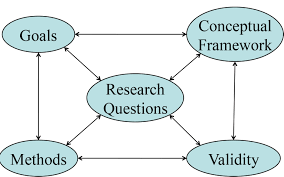
Principal speaker
Ausma Bernot
This workshop addresses the use of conceptual frameworks as an anchoring tool to introduce clarity to early research design. At some point, all researchers have been guilty of forgetting the primary focus of their research when faced with large volumes of data; this is especially true for mixed methods research that combines multiple methodologies and datasets. This workshop explains conceptual frameworks as a foundational part of early research design to guide and shape both literature review and research questions. By identifying research variables and clarifying their relationship, the use of a conceptual framework summarises literature review and "sets the stage' for research questions to be introduced (McGaghie et al, 2001). Broadly, conceptual frameworks add explicitness to research processes (Leshem & Trafford, 2007). This workshop familiarises learners with the theoretical and applied aspects of conceptual frameworks, and serves as preparation for the third part of this workshop series that engages learners to create their own conceptual visualisations.
Format.
This workshop is delivered over 1.5 hours session online. The first part of the session focuses on the theoretical introduction of conceptual frameworks, and the second part guides participants to analyse the use of conceptual frameworks in published research in breakout groups.
Pre-requisites.
Participants will benefit more from the workshop if they familiarise themselves with McGaghie, Bordage, and Shea's (2001) article in the recommended readings prior to the session.
Relationship to other RED workshops.
This session is the second in a series on putting together mixed methods (MM) studies (Workshops Parts 1-5, Seminar Part 6). These include Introducing MM (P1) and Assembling MM (P4) plus two workshops on Conceptual Frameworks regarding their Refinement (P2) and Visualisation (P3). A final seminar (P6) illustrates MM for analysis of interview transcripts.
Readings
Leshem, S., & Trafford, V. (2007). Overlooking the conceptual framework. Innovations in education and Teaching International, 44(1), 93-105.
McGaghie, W. C., Bordage, G., & Shea, J. A. (2001). Problem statement, conceptual framework, and research question. Academic Medicine, 76(9), 923-924.
Ravitch, S. M., & Riggan, M. (2016). Reason & rigor: How conceptual frameworks guide research. Sage Publications.
Event categories
RSVP
RSVP on or before Thursday 1 October 2020 09.23 am, by email RED@griffith.edu.au , or by phone 0755529107 , or via https://events.griffith.edu.au/d/x7q218/4W